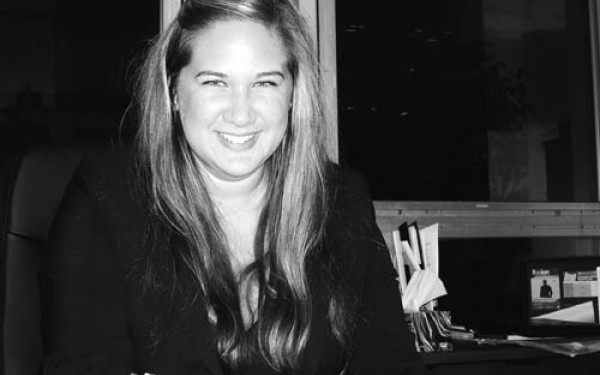Fighting For What?
The CSU Played a Role in Bill 59 Talks
What can and cannot be said in Quebec has been far from a straightforward debate these past few weeks, and it’s partly because of the controversial, now tabled, “hate speech” legislation of Bill 59.
This past Thursday, the Quebec government unanimously passed a motion denouncing Islamophobia, in response to increasing hate rhetoric and action toward Muslims—including a pregnant Muslim woman in Montreal who fell while two teenage boys tried to pull off her hijab.
“It’s a breath of fresh air,” Fo Niemi, executive director of the Centre for Research Action on Race-Relations (CRARR), said about Thursday’s motion.
On Wednesday, Sept. 23, Quebec’s Liberal government decided to scrap its “hate speech” bill until a better version is redrafted.
On Saturday, Sept. 26, members of a “silent march” in opposition to the bill came to blows with a counter, anti-fascist demonstration at Place Émile-Gamelin. Ariane Cassandre Paradis, an organizer of the march, told The Link that members of the anti-Islamic group PEGIDA Quebec were present.
The main rhetoric from the “silent march” was that the law would hinder freedom of speech.
“You can say whatever you like,” Niemi commented. “But if the people you’re targeting in your speech end up suffering violence and discrimination, then perhaps we have to revisit the notion of freedom of speech.”
Even supporters of a law that protects marginalized ethnic groups from hate speech considered Bill 59 to be problematic, concerned it was poorly drafted and susceptible to misinterpretation and possible abuse. The Concordia Student Union is part of this group.
In June, the CSU was part of a media campaign organized by CRARR to bring attention to the reason the law is now tabled: its lack of consultation with ethnic groups most affected by hate crime and ambiguous wording.
“Basically zero minority groups were part of that consultation process,” said CSU President Terry Wilkings. Politicians announced Bill 59 alongside Bill 62, which was essentially anti-radicalization legislation. Wilkings says he was disappointed with the overtones of Islamophobia from the two bills’ releases coinciding.
“Every politician knows that timing is important,” he said about the message sent by the bills’ coupling. Alongside groups like the Canadian Muslim Forum, the Black History Month Round Table, and the Association des Musulmans et des Arabes pour la Laïcité du Québec, the CSU successfully mobilized for the extension of public hearings on the law until mid-September, according to Wilkings.
By the end of July, nine groups, including CRARR and the CSU, were asked for consultation on the bill by a commission within Quebec’s National Assembly, according to a press release from CRARR’s website. At the time of the release, no First Nations group was consulted.
Instead of going to meet provincial legislature in Quebec City, the CSU submitted an 11-page brief summarizing their issues with the bill, says Wilkings. Among the problems, the CSU criticized undefined terminology of “hate speech,” the proposed “hate list” record of individuals who violate the bill and punitive fines for those who commit hate speech.
The CSU also emphasized the potential issue with the bill’s aim to eradicate honour-killings. In the brief, the student organization warned this particular aspect could actually incite more Islamophobia and xenophobia rather than work to end violence against minorities and women in general.
“Greater care should be developed to avoid a hierarchy of oppression of women whereby culture or religion-based oppression, or ‘femicide,’ is considered worse than other forms of violence against women, include state-sponsored violence against women,” the brief states.
In regard to having a “hate list,” the CSU believed that it was not explained how long an individual would publicly be on a record for enacting a hate crime, a safeguard for someone with a common name and how minors would be treated.
Niemi says CRARR has a long-standing relationship with the CSU. They chose to work with them for their campaign to reveal the bill’s faults because of Concordia University’s diverse student population, the school’s history with racially and gender motivated hate crimes, and the
CSU’s history of being proactive in the fight against these attacks, Niemi adds.
“Of all student unions in Montreal, the CSU has consistently shown pro-active leadership on many social justice involving race, gender, religion, sexual orientation and class,” he said.
Concordia is not unfamiliar to racial or gender related discrimination, especially in recent times. Last semester, a TVA film crew showed up at the Muslim Student Association’s library unannounced to document alleged Islamic texts with hateful rhetoric. Months later, it emerged that a former female executive at the school’s Arts and Science Federation of Associations (ASFA) experienced racial and sexual harassment from two former male colleagues.
In 2002, a riot occurred inside the Hall building downtown when Israeli Prime Minister Benjamin Netanyahu was expected to speak at the university. In 1969, the infamous Computer Riots organized by a group of Black Concordia students was sparked by the school’s inaction against a racist professor.
Bill 59 is tabled for now. A new legislation may be drafted in the future to legally combat hate crime. Wilkings says he’s hoping any possible new reform will be more comprehensive.
“I’m hopeful only in so far as they consult the groups that will be directly affected,” he said.

1_900_600_90.jpg)
2_900_600_90.jpg)
_600_832_s.png)


_.final_._jpg__600_375_s_c1.png)

__600_375_90_s_c1.jpg)